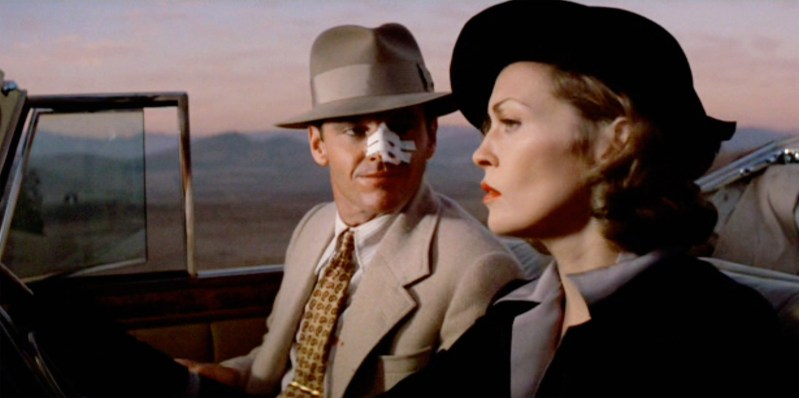The history of movies is littered with iconic lines, but few match the incredible power of “Forget it, Jake, it’s Chinatown.” The line is iconic not just for its poetry, but also because its placed at the conclusion of one of the great neo-noir stories ever told. Chinatown‘s legacy is complex, to put it mildly, but the 1974 film, which was released amidst a revolution in Hollywood, remains an important update to the noir genre that is still influencing moviemaking to this day, and it’s one of the great Oscar winners of all time.
Chinatown, which is set to leave HBO Max on January 31, is set in the Los Angeles of the 1930s. Against that backdrop, the film tells the story of Jake Gittes, a private detective who is initially hired by a woman named Evelyn Mulwray to investigate whether her husband is cheating on her. So far, so conventional. What Gittes quickly discovers, though, is that the reality of this investigation is exceedingly slippery. He can’t trust anyone, not even his client. He learns that the real Evelyn is someone else entirely, and Evelyn’s husband winds up dead. From there, Jake uncovers a conspiracy designed to suck huge swaths of land dry in order to buy them cheaply and meets Noah Cross, Evelyn’s father.
Without spoiling the film’s twists and turns, suffice it to say that Chinatown is really about the systems of power and corruption that cannot be unlodged simply by discovering them. The vast and insidious conspiracy that Jake uncovers is not something he can do anything to prevent. Chinatown, then, becomes an exercise in cynicism. It’s about knowing the world is unjust and broken, and feeling powerless to do anything about it.
Read more: The best thriller movies ever made.
It’s a movie that is very much of the era when it was released. Although it’s set decades earlier, Chinatown feels like an encapsulation of what it must have felt like to live through Watergate. Those in power act to serve their own ends, and they can usually get away with it. It’s the flip side to something like All the President’s Men, which came three years later. If All the President’s Men suggested that those in power could be held to account, Chinatown suggests that finding the truth and saving the day aren’t always one and the same. Some secrets, as dark as they might be, are better off buried, because resurfacing them only makes the people who tried to hide them more desperate to do so.
The movie’s general distrust of power, and the overwhelming feeling of powerlessness that Jake feels by the movie’s end don’t just parallel American history, though. They’re also a crystallization of a moment in Hollywood when movies had become more violent, more confrontational, and less wholesome than they had generally been throughout their long history.
Influenced in part by European directors who were finding innovative ways to tell stories on screen, the New Hollywood movement really launched in 1967 when Bonnie & Clyde and The Graduate both hit theaters. Those movies, with their edgier subject matter and morally ambiguous central characters, helped to redefine what movies could be, and ultimately ushered in an era where Hollywood studios could no longer exert as much control over the movies they had once produced so regularly.
Read more: The best movies on Netflix.
Jack Nicholson was one of the definitive stars of this era, and Chinatown is one of a roster of great performances that he gave in the early 1970s. The genius of Chinatown, specifically, is the way the movie’s cynicism seems to supersede even Jake’s belief that he has seen at all. In most noir stories, the detective at the center of the case is unrattled by whatever he discovers, and he usually manages to earn a pyrrhic victory, even if good does not definitively triumph over evil.

In Chinatown, though, Jake is shaken by what he sees, and by how little his knowledge of the truth seems to matter in the end. That’s why “Forget it Jake, it’s Chinatown” is such a memorable line. Jake emerges from this story battered and bruised, and the only thing he can possibly do is try to forget and move on with his life. He lost, the house won, and all he can do is walk away with his head in his hands.
Chinatown‘s legacy in the decades since it was released is immeasurable, but it’s complicated by its director. Roman Polanski has been charged with committing unforgivable crimes against young girls, and those crimes are such that it’s impossible to watch his movies without thinking about the crimes he’s committed.
And so, we come up against the problem of evaluating the art of a man who was later convicted of a serious crime. Anyone who wants to toss Chinatown in the trash bin of history and forget about it completely has a good case for doing just that.
Even if you don’t want to watch Chinatown for understandable reasons, though, it’s impossible to deny the movie’s influence on everything that came after it. Setting aside the numerous parodies and jokes written about Chinatown over the decades, the movie itself is a cynical, angry political document that has been referenced in everything from Blade Runner to basically every movie David Fincher has ever made. As is so often the case, it’s impossible to ignore that legacy, even if you want to.
Chinatown is now streaming on HBO Max, and will be available until January 31.



